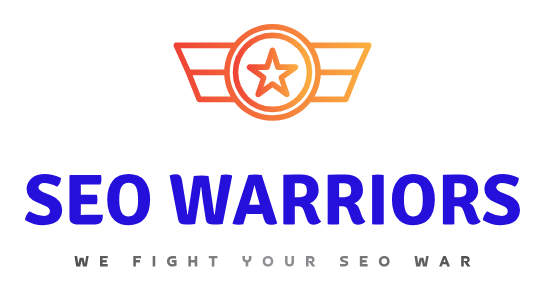If you want to boost your website’s visibility and attract more organic traffic, then incorporating effective SEO strategies is essential. With search engine optimization constantly evolving, it’s important to stay updated on the latest trends and techniques. By optimizing your website and implementing a solid SEO strategy, you can improve your search visibility and attract potential advertisers.
To start your SEO journey, begin by optimizing your website speed. A slow-loading site can negatively impact user experience and search rankings. By optimizing images, employing caching solutions, and avoiding externally stored content, you can significantly improve your website’s speed and performance.
Next, invest time in conducting thorough keyword research. By identifying target keywords and analyzing competitor data, you can uncover valuable insights into search intent and search volume. Incorporating these keywords strategically into your content and metadata can help improve your search ranking and attract relevant organic traffic.
Another crucial aspect of SEO is creating quality, informative content. By providing valuable information to your audience and optimizing your content for relevant keywords, you can establish yourself as an authority in your niche and increase your chances of ranking higher in search results.
In addition to on-page optimization, link building is an important factor in SEO success. By building both internal and external links, you can improve your website’s authority and credibility in the eyes of search engines. Internal links help users navigate your site and enhance site structure, while external backlinks act as “votes” for search engines, signaling that your content is trustworthy and valuable.
Lastly, don’t forget about mobile optimization. With more and more users accessing the internet through mobile devices, it’s crucial that your website is optimized for mobile viewing. Responsive design and mobile-friendly features are essential for providing a seamless user experience and improving your search ranking.

Key Takeaways:
- Optimize your website speed to enhance user experience and improve search rankings.
- Conduct thorough keyword research to identify target keywords and optimize your content accordingly.
- Create quality, informative content that appeals to both users and search engines.
- Build both internal and external links to improve your website’s authority and credibility.
- Ensure your website is mobile-friendly and optimized for mobile viewing.
Why an SEO Strategy is Vital
When it comes to achieving success online, having a solid SEO strategy is essential. Search engine optimization plays a critical role in driving website traffic, improving search visibility, and boosting search engine rankings. Without a well-executed SEO plan, your website may struggle to attract visitors and fail to reach its full potential.
Search engines like Google are constantly updating their algorithms and ranking factors, making it challenging for website owners to keep up. There is no one-size-fits-all approach to SEO, and trial and error are often necessary to discover what works best for your specific website.
“SEO teams analyze data to determine ranking factors.”
SEO professionals analyze data, conduct thorough keyword research, monitor website traffic, and dive deep into analytics to identify the most effective SEO strategies for a website. By understanding the factors that influence search engine rankings, they can implement targeted techniques that drive organic traffic and improve search visibility.
Implementing an effective SEO strategy can have a significant impact on your website’s success. It can not only increase organic traffic but also attract advertisers who are looking to partner with websites that have high search engine rankings and a strong online presence.
Boosting Rankings and Increasing Website Traffic
By employing SEO strategies such as optimizing on-page elements, creating quality content, and building relevant backlinks, you can improve your website’s visibility in search engine results pages (SERPs). Higher visibility translates into increased website traffic, as more users are likely to click on your site when it appears at the top of search results.
A well-optimized website can generate a steady stream of organic traffic, which is highly valuable as it consists of users actively searching for the products, services, or information your website offers. This targeted traffic is more likely to convert into leads, sales, or other desired actions on your site.
Attracting Advertisers with Strong SEO
In addition to driving traffic and improving search visibility, an effective SEO strategy can make your website more appealing to advertisers. Advertisers are always seeking websites with high search engine rankings and a large audience, as it provides them with valuable exposure for their products or services.
When your website ranks well in search engines, it demonstrates that you have established authority and credibility in your niche. This makes your website a desirable advertising platform, as advertisers know that their message will reach a wide and relevant audience.
| Benefits of an SEO Strategy | Summary |
|---|---|
| Increased website traffic | An effective SEO strategy helps drive more targeted traffic to your website, resulting in higher visibility and increased organic visitors. |
| Improved search visibility | Optimizing your website with SEO techniques helps your site rank higher in search engine results, making it more visible to users. |
| Higher search engine rankings | By implementing SEO strategies, you can improve your website’s rankings in search engine results pages, leading to more clicks and engagement. |
| Attracting advertisers | A well-executed SEO strategy makes your website more attractive to advertisers looking for high-ranking websites with a large audience. |
Creating a General SEO Strategy
When it comes to SEO, there is no one-size-fits-all solution. Every website has different needs and objectives, which require a customized approach. However, there are certain foundational elements that can form the basis of a general SEO strategy.
A great starting point for optimizing your website is to focus on improving its speed. Website speed is not only important for user experience but also plays a crucial role in search engine rankings. Slow-loading websites can result in higher bounce rates and lower search visibility.
To enhance website speed, consider implementing a caching solution. Caching stores a copy of frequently accessed web pages, reducing the load on the server and improving response time. This not only speeds up the website but also helps with search engine optimization.
Another factor to consider is avoiding externally stored content. While it may seem convenient to host images, videos, or other media files on external platforms, it can negatively impact website performance. By hosting content directly on your website, you reduce the dependency on external servers, resulting in faster loading times.
Image optimization is also a crucial aspect of improving website speed. By optimizing images, you can significantly reduce their file size without compromising on quality. This can be achieved by resizing images to the appropriate dimensions, compressing them, and using the right file format. Additionally, adding descriptive alt text to images is essential for accessibility and SEO.
Furthermore, choosing a reliable web hosting company is vital for overall website performance. A reputable hosting provider can ensure that your website is up and running smoothly, with minimal downtime and fast loading times.
In summary, creating a general SEO strategy involves optimizing website speed through techniques such as caching, avoiding externally stored content, and optimizing images. Additionally, selecting a reliable web host is crucial for website performance. By implementing these strategies, you can lay a solid foundation for your SEO efforts and improve the overall visibility and success of your website.

Keyword Research
Keyword research is a fundamental aspect of effective SEO. By conducting thorough keyword research, you can uncover valuable insights that will inform your content strategy and improve your search rankings. Here are a few key steps in the keyword research process:
- Target Keywords: Begin by identifying the target keywords that are relevant to your website or business. These are the terms that potential visitors are likely to use when searching for products, services, or information related to your industry.
- Competitor Analysis: Analyzing your competitors’ keywords can provide valuable insights and help you uncover new keyword opportunities. By understanding what keywords they are targeting and ranking for, you can refine your own keyword strategy.
- Search Intent: Understanding the intent behind a user’s search query is crucial for selecting the right keywords. By aligning your content with the search intent, you can create more targeted and relevant content that will attract the right audience.
- Search Volume: It’s important to consider the search volume of your chosen keywords. High search volume keywords can attract more traffic, but they also tend to have more competition. Balancing high and low search volume keywords can help you maximize your organic traffic potential.
- Google Search Console: Utilize tools like Google Search Console to gain valuable data on your website’s performance in search results. This information can help you identify keywords that are driving traffic to your site and make informed decisions about optimizing your content and metadata.
Optimizing Your Keyword Strategy
Once you have selected your target keywords, it’s important to integrate them strategically into your content and metadata. Use your keywords naturally throughout your website, including in page titles, headings, meta descriptions, and body content. This will improve your search visibility and help search engines understand the relevance of your content.
Remember, keyword research is an ongoing process. As search trends and user behavior evolve, regularly reevaluating and refining your keyword strategy will ensure that your website remains optimized for success.

Keywords are the cornerstone of SEO. By conducting thorough keyword research and implementing a well-thought-out strategy, you can improve your website’s visibility, increase organic traffic, and ultimately achieve higher rankings in search engine results.
Consider User Intent
User intent is a crucial factor in optimizing your website for search engines. It involves understanding why people search for specific terms and tailoring your content to meet their needs. By aligning your content with user intent, you can enhance the overall user experience and improve your SEO ranking.
When someone searches for a specific term, they have a particular goal or objective in mind. For example, if a user searches for “best running shoes,” their intent is likely to find information and make a purchase decision. By creating content specifically aimed at selling running shoes and including affiliate links, you can provide valuable information to users and increase the likelihood of conversions.
Optimizing your content for user intent goes beyond simply using relevant keywords. It involves understanding the specific search terms that users are using and catering your content to meet those needs. Conducting thorough keyword research and analyzing search trends can provide valuable insights into user intent and help you create content that aligns with what users are searching for.
Content optimization is key to meeting user intent. Ensure that your content is informative, relevant, and provides the solutions or information that users are seeking. Use headings, subheadings, and bullet points to make your content scannable and easy to navigate.
“Understanding user intent allows you to create content that resonates with your target audience. By providing the information or solutions they are looking for, you increase the chances of engagement, conversions, and ultimately, higher rankings.”
One way to further engage users and improve SEO is by adapting to user intent throughout the search process. This means understanding the different stages of the user journey and tailoring your content accordingly. For example, users in the research phase may be looking for informative content, while those in the comparison or purchasing phase may be seeking product reviews or pricing information.
By considering user intent and optimizing your content to meet those needs, you can attract and retain a more targeted audience, increase engagement, and ultimately improve your SEO ranking.

Next, we’ll explore the importance of internal and external linking in SEO.
Internal & External Linking
Internal and external linking are vital components of a successful SEO strategy. Internal linking refers to linking between pages within your own website. These internal links help users navigate to relevant content and improve the overall site structure. Additionally, internal linking signals to search engines the importance and relevance of specific pages within your website.
On the other hand, external linking involves linking to other websites from your own. Backlinks from reputable and high-quality websites are considered as “votes” by search engines, indicating that your website is trustworthy and valuable. These external links play a significant role in boosting SEO success and improving search engine rankings.
Building a solid link profile by strategically incorporating both internal and external links is crucial for improving website visibility and ranking. A well-structured internal linking system facilitates user experience and site navigation, while high-quality external backlinks enhance your website’s credibility and authority. Both aspects contribute to a comprehensive SEO strategy that drives organic traffic and improves search visibility.
In conclusion, internal and external linking are essential for SEO success. By incorporating internal links and building a strong backlink profile, you can optimize your website’s performance, improve search engine rankings, and ultimately increase organic traffic to your site.
FAQ
What are some ways to improve SEO ranking?
There are several strategies to boost SEO ranking, including optimizing website speed, conducting keyword research, creating quality content, and building high-quality backlinks.
Why is an SEO strategy important for a website?
An SEO strategy is vital for a website because it helps increase organic traffic, improve search visibility, and attract advertisers, ultimately leading to higher rankings and overall success.
How do I create a general SEO strategy?
To create a general SEO strategy, start by optimizing website speed, implementing a caching solution, avoiding externally stored content, and optimizing images. Choosing a reliable web hosting company is also crucial.
What is keyword research and why is it important?
Keyword research involves analyzing competitor keywords and using tools like Google Search Console to identify specific keywords that people are actively searching for. It helps improve search ranking and drives targeted organic traffic to a website.
How does user intent affect SEO?
User intent plays a significant role in SEO. Understanding why people search for specific terms allows for tailored content creation, which can lead to better user engagement, improved rankings, and increased conversions.
Why are internal and external linking important for SEO?
Internal linking helps with website navigation, improves site structure, and indicates content relevance to search engines. External linking, especially from high-quality sources, serves as a “vote” for search engines and can boost SEO success.
